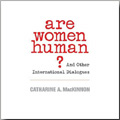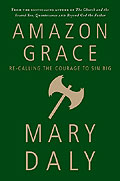WaPo weighs in on the National Intelligence Estimate I posted previously:
The war in Iraq has become a primary recruitment vehicle for violent Islamic extremists, motivating a new generation of potential terrorists around the world whose numbers may be increasing faster than the United States and its allies can reduce the threat, U.S. intelligence analysts have concluded.
A 30-page National Intelligence Estimate completed in April cites the "centrality" of the U.S. invasion of Iraq, and the insurgency that has followed, as the leading inspiration for new Islamic extremist networks and cells that are united by little more than an anti-Western agenda. It concludes that, rather than contributing to eventual victory in the global counterterrorism struggle, the situation in Iraq has worsened the U.S. position, according to officials familiar with the classified document.
[...]
"Together with our coalition partners," Bush said in an address earlier this month to the Military Officers Association of America, "we've removed terrorist sanctuaries, disrupted their finances, killed and captured key operatives, broken up terrorist cells in America and other nations, and stopped new attacks before they're carried out. We're on the offense against the terrorists on every battlefront, and we'll accept nothing less than complete victory."
But the battlefronts intelligence analysts depict are far more impenetrable and difficult, if not impossible, to combat with the standard tools of warfare.
Although intelligence officials agree that the United States has seriously damaged the leadership of al-Qaeda and disrupted its ability to plan and direct major operations, radical Islamic networks have spread and decentralized.
Many of the new cells, the NIE concludes, have no connection to any central structure and arose independently. The members of the cells communicate only among themselves and derive their inspiration, ideology and tactics from the more than 5,000 radical Islamic Web sites. They spread the message that the Iraq war is a Western attempt to conquer Islam by first occupying Iraq and establishing a permanent presence in the Middle East.
[...]
The latest terrorism assessment paints a portrait of a global war in which Iraq is less the central front of actual combat than a unifying battle cry for disparate extremist groups and even individuals. "It is just those kinetic actions that lead to the radicalization of others," a senior counterterrorism official said earlier this summer. "Surgical strikes? Nothing is surgical about military operations. They tend to have impacts, affects."
That description contrasts with Bush's emphasis this month on offensive military action in Iraq and elsewhere as the United States' principal road to victory in the global war.
"Many Americans . . . ask the same question five years after 9/11," he said in a speech in Atlanta earlier this month. "The answer is yes. America is safer. We are safer because we have taken action to protect the homeland. We are safer because we are on the offensive against our enemies overseas. We're safer because of the skill and sacrifice of the brave Americans who defend our people."
But "a really big hole" in the U.S. strategy, a second counterterrorism official said, "is that we focus on the terrorists and very little on how they are created. If you looked at all the resources of the U.S. government, we spent 85, 90 percent on current terrorists, not on how people are radicalized."Republicans only know how to blow things up. They don't do nuance. The right-wing would characterize that "really big hole" in strategy as appeasing the terrorists. Fools don't know how to make peace. Heck, they don't know how to protect America so why listen to the GOP spiel. Bush says, "America is safer." A question for George: Where do you stash your booze? Happy talk comes from something and it isn't reality.























|